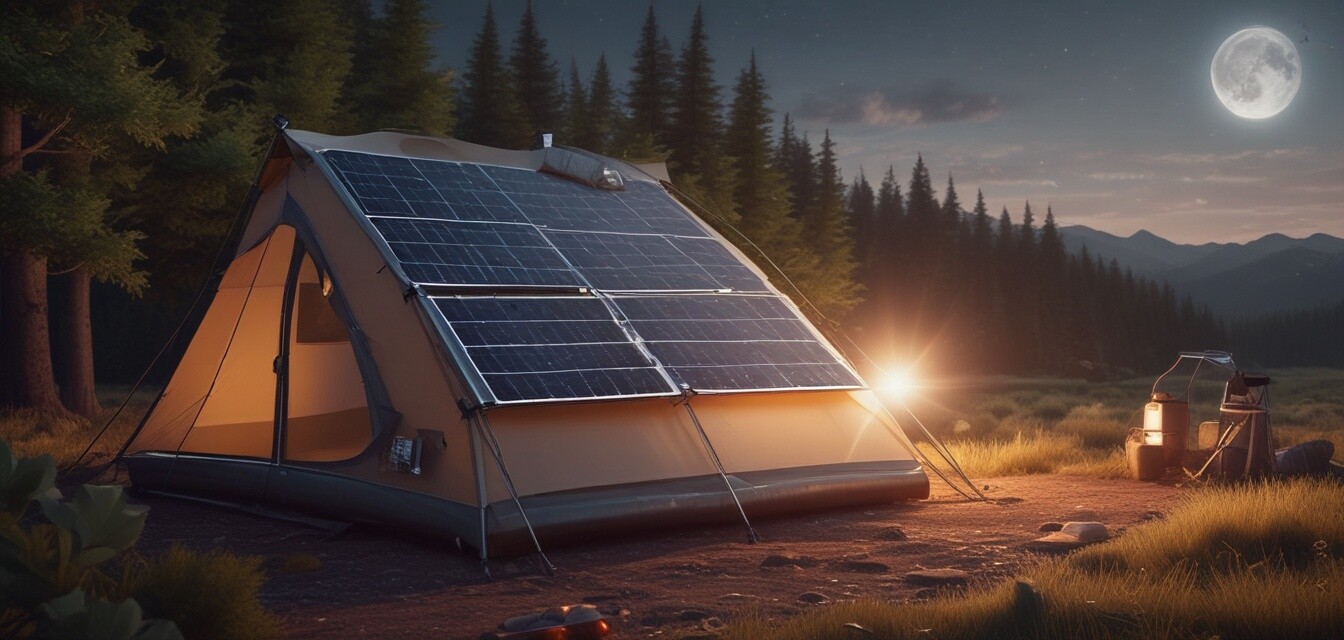
Solar Camping and Natural Conservation Efforts
Key Takeaways
- Solar camping promotes eco-friendly practices that benefit nature.
- Utilizing solar energy minimizes reliance on fossil fuels.
- Solar camping shelters integrate advanced technology for a sustainable experience.
- Being aware of conservation efforts enhances camping experiences.
- Innovation in solar technology continues to improve camping gear.
As more people embrace outdoor adventures, the demand for eco-friendly options has significantly increased. Solar camping is not just a trend; it is a commitment towards protecting the environment while enjoying the great outdoors. This article explores how solar camping aligns with natural conservation efforts and promotes sustainable practices that benefit both nature and outdoor enthusiasts.
The rise of solar camping
Over the past few years, solar camping has gained momentum as a popular choice among nature lovers. With advancements in solar technology and the quest for sustainable lifestyles, more campers are opting for solar-powered tents and shelters. This section discusses the key elements contributing to its rise.
- Increased awareness: More people are becoming conscious of their carbon footprints and the impact of their activities on nature.
- Technological advancements: Improved solar technology has made camping solar gear more efficient and accessible.
- Availability of solar camping gear: A wider range of products, such as solar camping tents and portable solar panels, is available to enthusiasts.
How solar camping contributes to conservation efforts
Solar camping is not merely about enjoying nature; it also plays a pivotal role in conserving natural resources. Here’s how:
| Benefit | Description |
|---|---|
| Reduces fossil fuel dependency | Solar energy replaces the need for propane and gas, which are often used for cooking and lighting. |
| Lower environmental impact | Solar camping setups produce minimal waste and emissions. Solar energy is a clean and renewable resource. |
| Protection of wildlife | Using solar energy minimizes disturbances to the local wildlife that may be affected by traditional camping practices. |
| Encouragement of sustainable practices | It promotes a mindset of respect and care for the environment that campers carry into their daily lives. |
Innovative features of solar camping gear
As the market for solar camping gear expands, manufacturers are continually innovating to enhance functionality and sustainability. Here are some notable features:
- Integrated solar panels: Many modern tents now feature built-in solar panels that can charge devices and power lights.
- Water-Resistant Designs: Solar-assisted camping gear is often designed to withstand varying weather conditions.
- Portable energy solutions: From solar cookers to solar lanterns, campers have diverse options to harness solar power.
The importance of conservation awareness in camping
Understanding conservation efforts enhances the camping experience. Here are some key areas where awareness plays a role:
Beginner tips for eco-friendly camping
- Practice “Leave No Trace” principles to minimize impact on the environment.
- Educate yourself about the local ecosystem and wildlife.
- Opt for biodegradable products whenever possible.
- Choose camping sites that adhere to sustainable practices and conservation guidelines.
Future trends in solar camping
The future of solar camping looks promising, with ongoing advancements aiming to create more efficient and user-friendly products. Here are some expected trends:
- Advanced Battery Technology: The introduction of improved battery systems will enable longer use of solar energy, powering a wider variety of devices.
- Smart Camping Gear: The integration of smart technology will enhance the convenience and functionality of solar-powered camping equipment.
- Collaborative Conservation Efforts: Increased partnerships between outdoor brands and conservation organizations to promote sustainability.
Conclusion
Solar camping represents a significant step towards a more sustainable future in outdoor recreation. By minimizing our ecological footprint and embracing clean energy, campers can enjoy nature while preserving it for future generations. As technology evolves, the possibilities for eco-friendly camping gear are limitless, encouraging us all to reconnect with nature responsibly. Make sure to stay updated with the latest trends in solar-powered camping shelters and discover how these innovations can enhance your outdoor experiences.
Pros
- Encourages eco-friendly practices among campers.
- Reduces environmental impact with renewable energy sources.
- Innovative technology improves camping experiences.
Cons
- Some solar camping gear can be more expensive than traditional options.
- Dependence on sunlight can limit usability in shaded areas.
- Initial setup may require learning to optimize energy use.